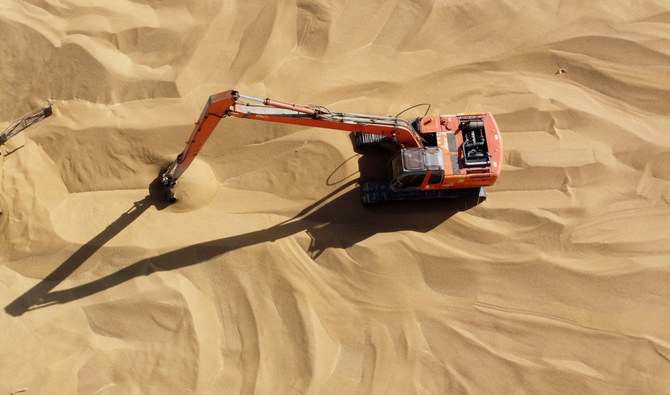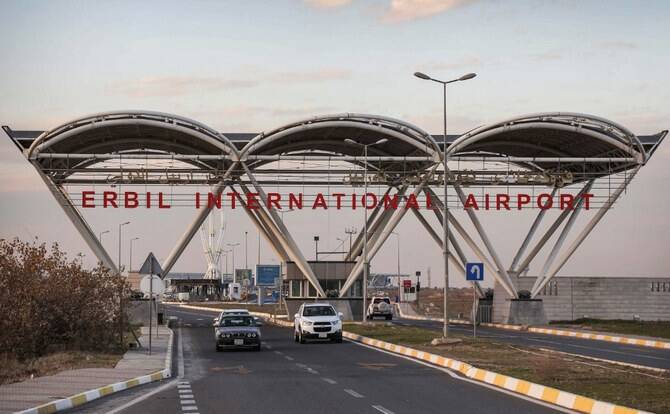Watered by sprinklers fitted to wells dug more than 100 meters under the sun-bleached earth, his land now produces double what it did compared to when he relied on ancient methods that flood fields with river water, he said.
“It’s a golden year, a golden season,” said Salah, wearing a traditional white robe and reflective sunglasses as he walked his field and noted the benefits: less money and water spent, as well as a bigger and quality harvest.
Iraq’s government says this officially supported shift has allowed the country to double areas cultivated with wheat this year to some 8.5 million dunams (850,000 hectares) compared to roughly 4 million (400,000 hectares) last year.
Agriculture Ministry spokesperson Mohammad Al-Khuzai said that has translated into a harvest of around 4 million tons of wheat — the largest in years and 80 percent of the needs of a country with a 43 million population who eat bread at almost every meal. The shift in methods is driven by necessity: Iraq’s two main rivers, along which civilization emerged thousands of years ago, have lost more than half of their flow due to reduced rainfall, overuse and upstream dams.
Drilling the desert for water could provide immediate relief in a country that the UN says is among the five nations most vulnerable to climate change in the world, and where climate-induced migration has already begun. However, heavy use of the wells could bleed desert aquifers dry, agricultural experts and environmentalists warn. Some farmers have already noted a drop in the water table.
Iraq has more than 110,000 wells, but only a fraction, some 10,000, are fitted with modern systems that prevent water waste, said Karim Bilal, an agricultural engineer and former director of Najaf’s agriculture directorate.
Hadi Fathallah, director of public policy at consultancy Namea Group who has researched agriculture in Iraq said: “It’s very desperate to go to desert wells.
“You are plugging into aquifers that have been gathering water for thousands of years and will disappear in a few years if used this way,” he said.
Iraq should focus on modernizing agriculture, engage in water diplomacy with its neighbors to increase river flows and revitalize agricultural areas that have not recovered from war, Fathallah said.
Al-Khuzai said the government was focused on sustainable use, supporting the installation of drip and sprinkler systems.
Large institutions have bought into the shift to desert wells: The body that oversees the Imam Hussein Holy Shrine now farms 400 hectares of wheat in the desert — 55 km from the shrine — up from 100 hectares in 2019.
“We have turned the desert into a green oasis,” declared Qahtan Awaz, an agricultural official with the shrine, though he noted that the water table had sunk between 12 to 15 meters since last season.
Behind him, a pair of large green US-made harvesters pulled in wheat grown in large circles, then funneled processed grain into waiting trucks for delivery to government silos.
From there, much of the grain enters one of the largest government-run food programs in the world, which provides most families with monthly rations.
Crop failures in 2021 and 2022 driven by drought, and a surge in food prices due to Russia’s invasion of Ukraine put the scheme under pressure, which the government wants to avoid.
“The government are trying to alleviate a lot of pain,” Fathallah said.
“But this is not adaptation to climate change. It’s a kind of morphine.”
Reuters






















